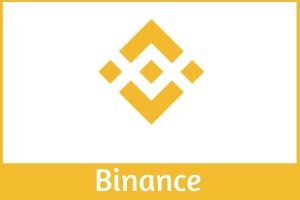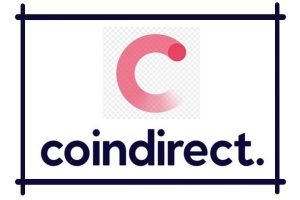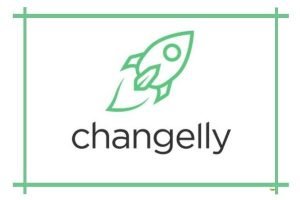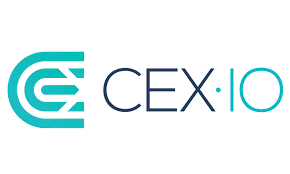In today’s post, I will discuss Bitcoin Gold, a cryptocurrency obtained from a fork of Bitcoin.
Only a few months after Bitcoin Cash(BTC) hard fork, the Bitcoin blockchain experienced another hard fork which ushered in Bitcoin Gold(BTG).
Bitcoin Gold seeks to make Bitcoin decentralized again by altering Bitcoin’s mining algorithm from SHA 256 to the Equihash algorithm. Miners mostly use GPUs to mine Equihash.
By doing so, it will make mining accessible to everyone, thus decentralizing the Bitcoin blockchain again.
But how far has it gone with its vision of ‘decentralizing Bitcoin again’?
You will find that out and much more in this post which I promise will provide answers to whatever query you might have about Bitcoin Gold.
Just grab your pen and jotter and hop in for this ride into the BTG world.
Post Overview
The following subheadings will spear-head our discussion today:
- What is Bitcoin Gold(BTG)?
- Bitcoin Gold(BTG) Mining
- Where Can I Store My Bitcoin Gold(BTG)?- The Best BTG Wallets
- The Top Exchanges to Buy Bitcoin Gold
- Bitcoin Gold(BTG), Bitcoin Cash(BCH), and Bitcoin(BTC) Compared
- Conclusion
You can access details of the above-listed subheadings by clicking on any of them.
Have a swell reading experience!
What is Bitcoin Gold(BTG)?
As mentioned above, Bitcoin Gold is a hard fork of Bitcoin which occurred on 25th October 2017 with block 491,407 on the Bitcoin blockchain.
When that happened, Bitcoin Gold took a record of all the balances and transactions on Bitcoin up to that point. From that point, a new blockchain emerged.
Some developers and miners, led by Jack Liao, the CEO of LightningAsic, a Hong Kong-based mining equipment manufacturing company, drove the Bitcoin Gold project.
The fork occurred due to perceived mining centralization in Bitcoin.
Bitcoin follows the Proof of Work protocol and does ASIC mining. Because of this, people and organizations that can afford faster and more powerful ASICs usually have a better chance at mining than the others.
This results in Bitcoin not being as decentralized as it should be.
To solve this, Bitcoin Gold altered Bitcoin’s Proof-of-Work algorithm from SHA-256 to the Equihash algorithm. Because of this small adjustment, BTG can only be mined via GPUs and not with ASICs.
As a result, many miners would spread Bitcoin Gold mining, instead of a few large companies.
Pause for an ad! Learn How To Trade
If you want to learn how to trade cryptocurrencies profitably, sign up for free on Afibie.
You can join our Telegram channel, where we hold live sessions and give trade signals.
Continue below!
Another interesting thing that the BTG team did after the launch was what is called ‘Post Mining’.
They mined 100,000 coins after the fork had already taken place. They did this by rapidly mining 8000 blocks at 12.5 BTG per block.
The BTG team used these coins for two purposes:
- The majority of them were placed into an ‘Endowment’ that will be used for the growth and maintenance of the ecosystem.
- About 5% of the 100,000 coins were set aside as a bonus for the members of the BTG team.
At the time of the launch, all Bitcoin owners received Bitcoin Gold coins at the rate of one Bitcoin Gold token per one Bitcoin token.
But how does mining on BTG blockchain work?
Bitcoin Gold(BTG) Mining
Bitcoin’s current ASIC-driven blockchain makes use of a hashing algorithm known as SHA-256 for its Proof of Work.
But Bitcoin Gold’s founders have replaced SHA-256 with an ASIC-resistant algorithm developed by Dmitry Khovratovich and Alex Biryukov known as Equihash.
Equihash is not new to blockchain technology; notable cryptocurrencies like Zcash have been using it with resounding success.
With Bitcoin Gold adopting this algorithm, it has made mining more distributed. Thus, fulfilling the purpose for which BTG was created.
Mining for BTG is currently best done using Graphics Processing Units(GPUs) namely Nvidia GTX (1080ti, 1080, and 1070ti)
Mining Requirements
To mine BTG, you’ll need:
- A wallet and its address
- A PC running on 64-bit OS Windows
- GPU Mining Software (either AMD- or Nvidia-based)
- A reliable internet
With the above requirements complete, you can start off mining on your own or join a mining pool.
Other things to consider include electricity supply, how to cool your mining equipment, and how to manage the noise from the equipment.
You can also decide to sign up for a mining contract with a reputable cloud mining company.
After discussing BTG mining, it is now the appropriate time to consider the best wallets for storing the mined coins.
Don’t stop reading now.
Where Can I Store My Bitcoin Gold(BTG)? – The Best BTG Wallets
The best wallets where you can store your BTG include:
1. Ledger

The Ledger wallets are among the most popular hardware wallets available.
They look like ordinary USB drives, but they feature a built-in screen.
Known to be simple and secure, the Ledger plugs into your computer through the USB port.
They’ve proved to be one of the best Bitcoin Gold wallets.
2. Trezor

The Trezor hardware wallet is yet another popular choice for those who want to store their cryptos offline.
Trezor protects against the threat of keyloggers that might record the keystrokes needed to access your funds.
Trezor does this by generating a randomized PIN code each time you want to access your wallet.
3. KeepKey

KeepKey Wallet is one of the oldest and most secure hardware wallets to secure cryptocurrencies.
It uses advanced technology to protect the customer’s funds from theft or hacks.
KeepKey has been integrated with the ShapeShift cryptocurrency exchange; so it is possible to exchange the digital assets directly from the device.
KeepKey wallet also offers the option to recover your account in the event the device is broken, stolen, or lost.
4. Exodus

Exodus is a desktop wallet that can store a wide variety of cryptocurrencies, including Bitcoin Gold.
It is mainly designed for people who are starting out in crypto and hence, might not be ready to drop any money on a hardware wallet.
Its interface is user-friendly and has a comprehensive list of FAQs and articles explaining its features, troubleshooting and more.
5. Coinomi

Coinomi is a security-first, multi-chain wallet for both mobile and desktop.
It provides native support and true ownership for more than 125 blockchains (the biggest number in the industry for non-custodial wallets) and thousands of tokens.
All supported assets can be exchanged instantly via built-in support for ShapeShift and Changelly.
6. Atomic Wallet

Atomic Wallet provides a powerful, in-demand service that allows users to:
- reduce the effort spent on managing crypto assets
- makes it transparent and reliable.
The wallet is available for all major Operating Systems.
7. Bitcoin Gold Core Wallet

The Bitcoin Gold Core wallet is the official full-node wallet of the digital currency that stores your private keys on your computer.
As well as sending, storing and receiving BTG, it even allows you to mine BTG.
It is available for Linux, Windows and Mac OS.
That’s all about the wallets that are the best for safely storing your Bitcoin Gold.
I will be discussing the exchanges where you can buy/sell BTG next.
Keep reading.
The Top Exchanges to Buy/Sell Bitcoin Gold(BTG)
Listed below are the best exchanges where you can buy/sell BTG in Nigeria:
- Binance
- Coindirect
- Changelly
- CEX.IO
1. Binance

Changpeng Zhao, a Chinese developer, launched Binance in 2017.
It is a trading platform for over 500 cryptocurrency pairs. and now offers more services apart from crypto trading.
Just recently(October 2019), it partnered with Flutterwave, a global payment technology company to provide access to its African users to purchase cryptocurrency with fiat.
2. Coindirect

Coindirect launched its cryptocurrency exchange in 2017.
It offers 2 types of accounts to its users: with the Personal account, you can trade 24/7 and enjoy other services from Coindirect while the Business accounts help merchants integrate cryptocurrency into their business.
Coindirect is available in 25 countries.
3. Changelly

Changelly is a non-custodial instant cryptocurrency exchange, meaning the service does not hold users’ funds.
It has acted as an intermediary between crypto exchanges and users since its inception in 2015.
Other supported coins include Bitcoin, Ripple, Ethereum, Litecoin, and 150+ others.
4. CEX.IO

CEX.IO launched in 2013 as a Bitcoin exchange that also provides cloud mining services.
In 2015, it stopped its mining activities and focused mainly on the Bitcoin sector.
Over the years, CEX.IO included Bitcoin Gold to the exchange considering the growing interest towards it.
You can make payments through bank transfer and by using credit/debit cards.
These are the top exchanges where you can buy/sell BTG in Nigeria. Other exchanges include HitBTC, Coinbase, OKEx, Bitfinex, etc.
I will now compare Bitcoin Gold to its predecessors: Bitcoin and Bitcoin Cash.
Scroll down to read.
Bitcoin Gold, Bitcoin Cash, and Bitcoin Compared
| S/N. | Parameters | Bitcoin Gold | Bitcoin Cash | Bitcoin |
| 1. | Year created | 2017 | 2017 | 2009 |
| 2. | Total supply | 21 million | 21 million | 21 million |
| 3. | Mining algorithm | Proof of Work (Equihash) | Proof of Work (SHA 256) | Proof of Work (SHA 256) |
| 4. | Mining hardware | GPUs | ASICs | ASICs |
| 5. | Block confirmation time | 10 mins | 10 mins | 10 mins |
| 6. | Market capitalization value (20th Nov. 2019) | ~$108.1 million | ~$3.83 billion | ~$129.3 billion |
| 7. | Replay protection | Yes | Yes | – |
The common thing with these 3 cryptocurrencies is that they all sprang from the same root: started off with Bitcoin and then 2 hard forks that brought about BCH and BTG.
The comparison will be based on:
- Total supply
- Mining algorithm
- Mining hardware
- Block time
- Difficulty adjustment
- Replay protection
Read the details below.
1. Total Supply
They have a total coin supply of 21 million coins each. This is because, as mentioned earlier, they all began from the same root(Bitcoin).
2. Mining Algorithm
They are all mined with the Proof of Work algorithm but BTC and BCH still use SHA 256 while BTG uses Equihash.
3. Mining Hardware
BTG can be mined using GPUs but for BTC and BCH, ASIC miners are used.
4. Block Time
This still remains 10 minutes for all 3 cryptos.
5. Difficulty Adjustment
Difficulty is a parameter that cryptocurrencies use to keep the average time between blocks steady as the network’s hash power changes. This parameter is pre-set to adjust itself over a period of time i.e. it either increases or decreases.
The difficulty increases if the set numbers of blocks to be mined are completed before the given time and then decreases if the blocks are totally mined way after the given.
And one may ask, ‘What if the blocks are mined at the set time?’ Well, if it happens this way, it just shows that the difficulty is set at the right level and so it continues at that level.
For BTC and BCH, the difficulty is set to adjust after every 2016 block (approx. 2 weeks). In other words;
The goal of the Bitcoin algorithm is that 2,016 blocks are mined in exactly 2 weeks. If this is achieved then perfect? we are good. But if 2,016 blocks are mined in less than 2 weeks, difficulty increases, if mined in more than two weeks difficulty reduces.
Bitcoin Gold uses DigiShield V3, a difficulty adjustment algorithm to monitor the time that has elapsed between the most recent block and the median of a set number of preceding blocks. It maintains a 10-minute interval between blocks to adjust the difficulty.
6. Replay Protection
Since Bitcoin Cash and Bitcoin Gold are forks of the Bitcoin blockchain when a transaction is made in the Bitcoin blockchain, it will be replicated in the BCH and the BTG blockchain. Replay protection is an important feature coded into the new blockchains to prevent this from happening thus making the new blockchains truly independent. BCH and BTG use this feature to ensure safety in the Bitcoin ecosystem.
And this wraps up today’s post!
Come with me to the concluding part to ask all the questions you have jotted down.
Conclusion
Now we’ve come to the end of this smooth ride into the world of Bitcoin Gold.
I’m sure you enjoyed the ride and that you learnt a whole lot too.
So now I will want to hear your comments and questions(if any); have a few to ask though.
Which of the exchanges listed have you used to trade BTG?
Have you tried out BTG mining? What was your experience?
Do you think BTG is still living up to its motto of ‘decentralizing Bitcoin again’?
Leave your thoughts on the above questions in the comment section below.
That’s the space where you can ask me your own questions too and drop your comments.
Share the BTG knowledge you’ve acquired with others using the social media buttons below.



0 Comments